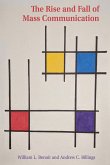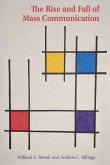Persuasive attacks have captured public interest for centuries. These attacks uniquely span the range from high level politics to celebrity scandal. Each context highlights totally different harmful behaviors, yet key strategies are employed in consistent, and surprisingly unique, ways.
This book investigates the nature of persuasive attack by examining the strategies used in various cases to denigrate an individual or organization for their behavior and/or character. Beginning with a review of previous scholarly work on persuasive attack, this book then explicates Benoit's Theory of Persuasive Attack, and utilizes the theory to illuminate case studies from a variety of contexts including memes, political cartoons, selfies, documentaries, PAC advertisements, presidential debates, international relations, sports, and business. The book concludes with applications for educators, students, and scholars looking to better understand the way attack discourse functions in real world contexts.
"This timely book presents a compelling argument that persuasive attack and character assassination have become the trademarks of our time. Hence, this publication is not only recommended for scholars of persuasion, but all academics and practitioners who study reputational attacks and defenses in the worlds of politics, business, and entertainment. This seminal work not only advances communication theory, but also offers valuable insights for political consultants and policymakers dealing with threats to reputation on a daily basis."
-Sergei A. Samoilenko, Assistant Professor, George Mason University, Co-Founder of the Research Lab for Character Assassination and Reputation Politics (CARP)
This book investigates the nature of persuasive attack by examining the strategies used in various cases to denigrate an individual or organization for their behavior and/or character. Beginning with a review of previous scholarly work on persuasive attack, this book then explicates Benoit's Theory of Persuasive Attack, and utilizes the theory to illuminate case studies from a variety of contexts including memes, political cartoons, selfies, documentaries, PAC advertisements, presidential debates, international relations, sports, and business. The book concludes with applications for educators, students, and scholars looking to better understand the way attack discourse functions in real world contexts.
"This timely book presents a compelling argument that persuasive attack and character assassination have become the trademarks of our time. Hence, this publication is not only recommended for scholars of persuasion, but all academics and practitioners who study reputational attacks and defenses in the worlds of politics, business, and entertainment. This seminal work not only advances communication theory, but also offers valuable insights for political consultants and policymakers dealing with threats to reputation on a daily basis."
-Sergei A. Samoilenko, Assistant Professor, George Mason University, Co-Founder of the Research Lab for Character Assassination and Reputation Politics (CARP)








